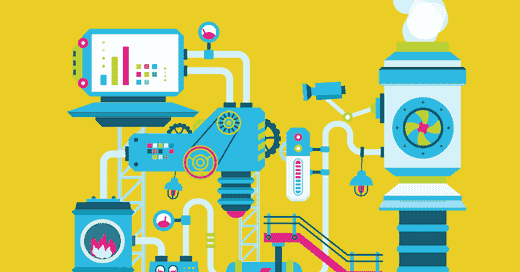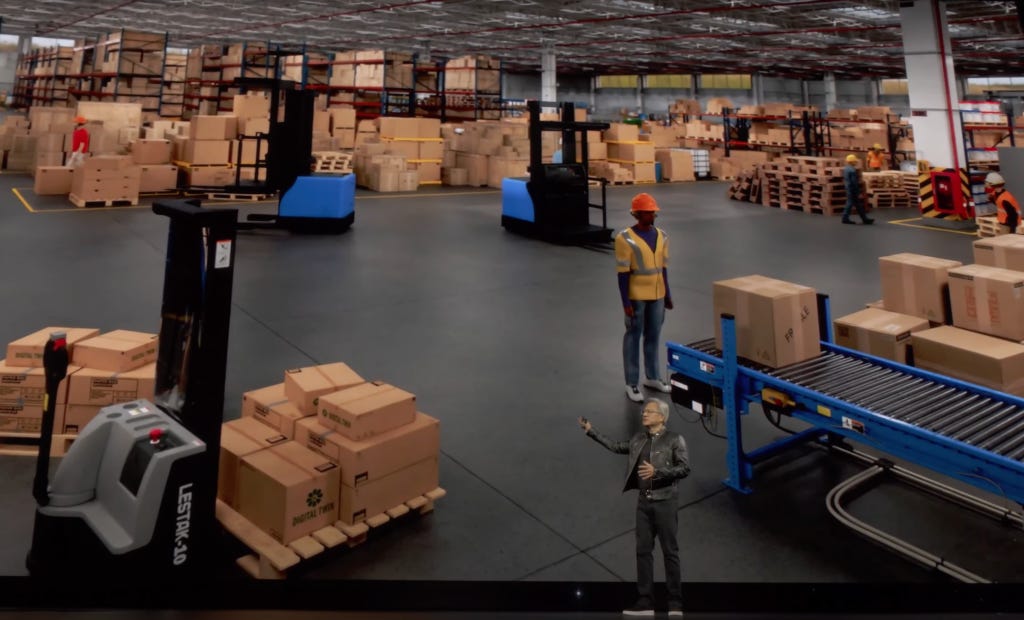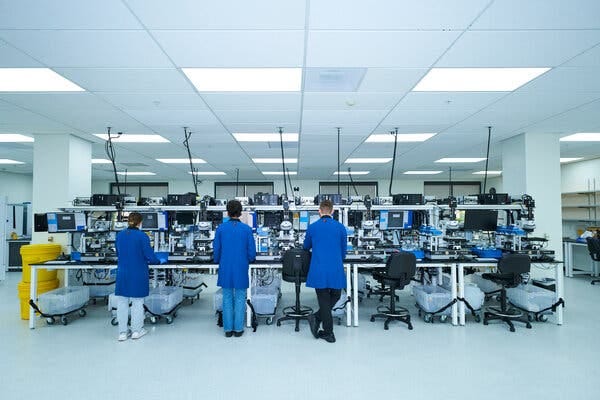AI: The 'AI Factories' in Healthcare & beyond. RTZ #391
...industrial scale production of 'tokens' as intelligence underway
At Nvidia’s last GTC Developer conference back this March, Nvidia founder/CEO Jensen Huang talked about wanting “Enterprise to think ‘AI Factory’, not data center”, as Techcrunch explained back then:
“In Monday’s keynote at Nvidia’s GTC 2024 event, CEO Jensen Huang kept repeating the phrase “AI factory.”
“In the last Industrial Revolution, the raw material that went into the factory was water,” Huang told TechCrunch in an interview after the keynote. “And the product was electricity.”
“He was comparing this — turning raw material into something else that have value — to the notion of data centers, which are purely money pits. “There’s a new Industrial Revolution happening in these [server] rooms: I call them AI factories,” Huang said. “The raw material that goes in is data and electricity. What comes out of it is data tokens. The token is invisible and will be distributed all over the world. It’s very valuable.”
“The distinction makes a lot of sense in a world where Nvidia benefits tremendously if it can persuade companies to think of data centers and AI tools in a different way. “The last time, data centers went into your company’s cost centers and capital expenditure. You think of it as cost. However, a factory is a different thing. It makes money,” he said. “The new world of generative AI has a new form of factory.”
That phrase ‘AI Factory’ sounds abstratct, until perhaps reading this in NYTimes’ “How A.I. Is Revolutionizing Drug Development”:
“In high-tech labs, workers are generating data to train A.I. algorithms to design better medicine, faster. But the transformation is just getting underway.”
“The laboratory at Terray Therapeutics is a symphony of miniaturized automation. Robots whir, shuttling tiny tubes of fluids to their stations. Scientists in blue coats, sterile gloves and protective glasses monitor the machines.”
“But the real action is happening at nanoscale: Proteins in solution combine with chemical molecules held in minuscule wells in custom silicon chips that are like microscopic muffin tins. Every interaction is recorded, millions and millions each day, generating 50 terabytes of raw data daily — the equivalent of more than 12,000 movies.”
“The lab, about two-thirds the size of a football field, is a data factory for artificial-intelligence-assisted drug discovery and development in Monrovia, Calif. It’s part of a wave of young companies and start-ups trying to harness A.I. to produce more effective drugs, faster.”
The whole piece is worth reading to get the scope of innovation spurred by the innovations of big tech companies like Google/Alphabet’s Deepmind, with the latest version of Alphafold 3 this early in the AI Tech Wave. As the NYTimes continues to explain:
“In 2021, Google DeepMind released software that accurately predicted the shapes that strings of amino acids would fold into as proteins. Those three-dimensional shapes determine how a protein functions. That was a boost to biological understanding and helpful in drug discovery, since proteins drive the behavior of all living things.”
“Last month, Google DeepMind and Isomorphic announced that their latest A.I. model, AlphaFold 3, can predict how molecules and proteins will interact — a further step in drug design.”
I bring all this up today because it’s important to also keep in mind how early AI technologies are in the Enterprise realm, and in massive verticals like Healthcare. It’s an area I’ve discussed at length before, if only to highlight the blurring of basic and applied AI research beginning to Scale.
The NYTimes’ timely AI piece on ‘AI Factories’ starting to get going in Drug Design around Healthcare, shows just how quickly AI is being adapted at scale here as well. And how they’re not just about AI robots doing industrial scale work in factories, although that’s happening as well of course in the area of Foundation Robotics. More on that later.
But mostly, it’s important to remember how ‘AI factories’ are not just a catchy marketing phrase by companies like Nvidia. Stay tuned.
(NOTE: The discussions here are for information purposes only, and not meant as investment advice at any time. Thanks for joining us here)







